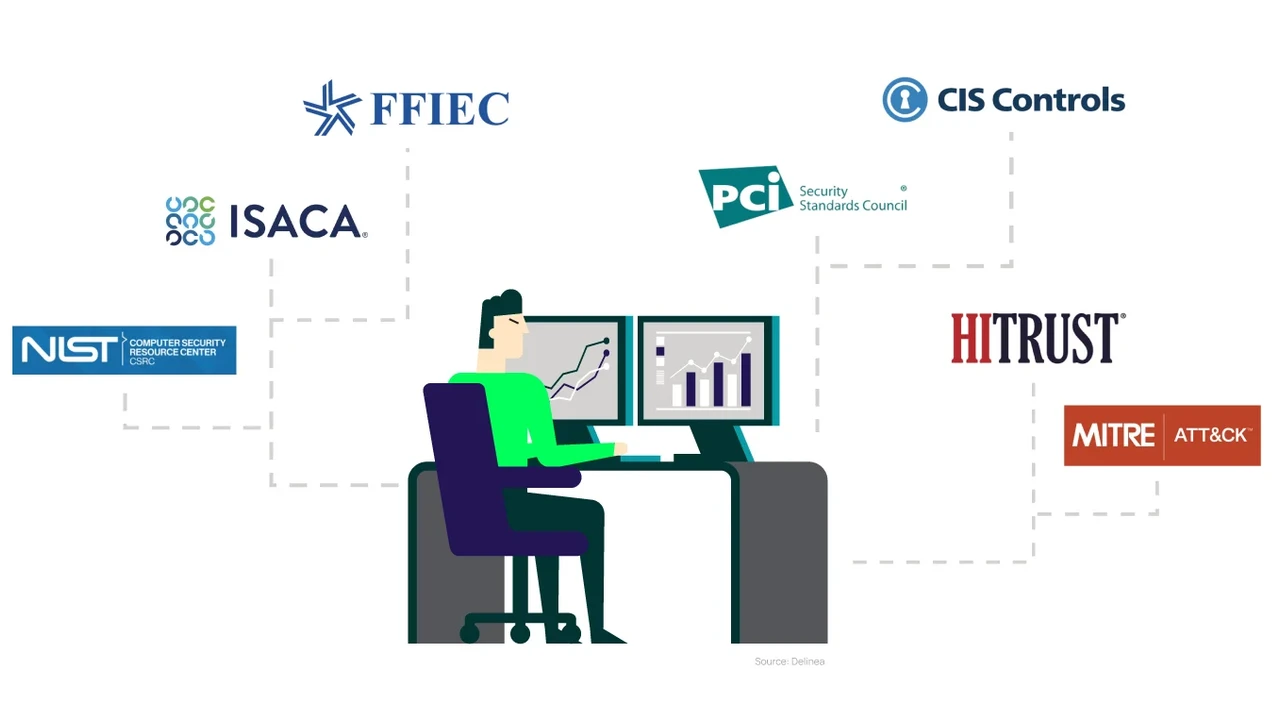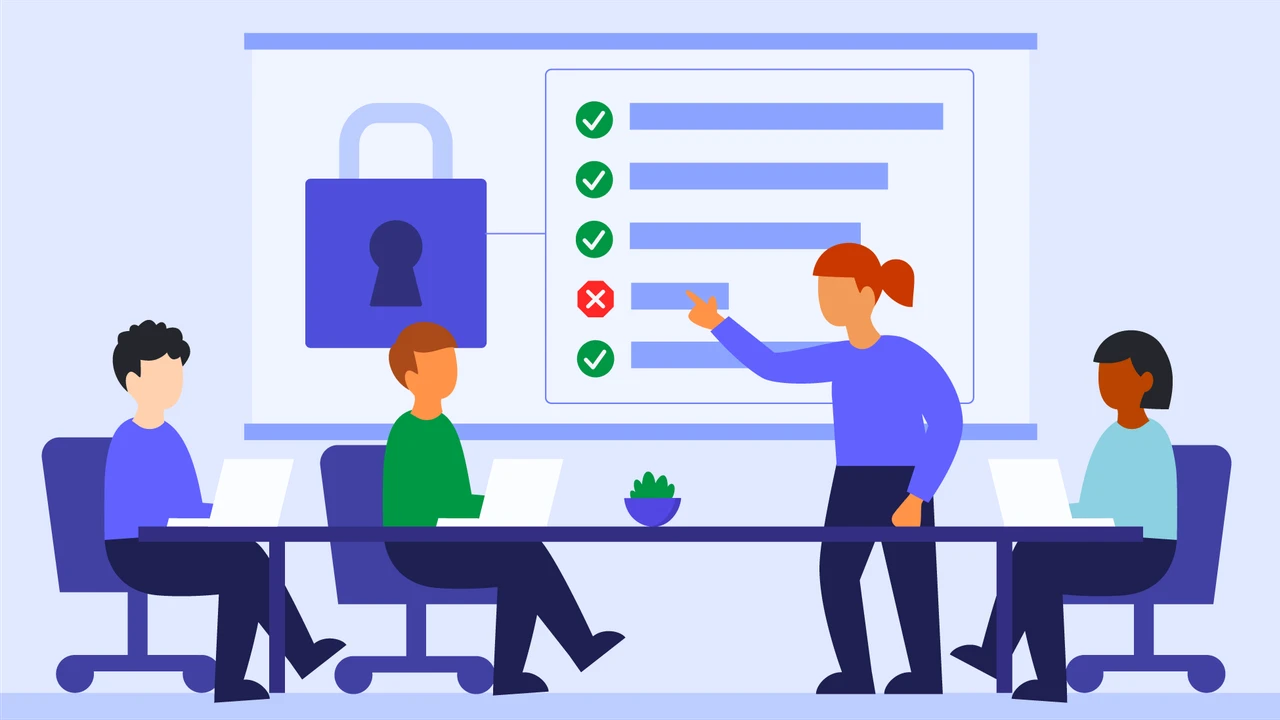Data Loss Prevention (DLP) Strategies to Protect Sensitive Information
Evaluate and select the right data security solutions for your business. Consider factors such as data sensitivity, regulatory requirements, and budget to make informed decisions.
 Strategies to Protect Sensitive Information.webp)
Understanding Your Data Security Needs and Regulatory Compliance
Okay, so you know you need data security solutions. But where do you even start? First, take a good hard look at your data. What kind of data are we talking about? Is it customer credit card info? Patient health records? Trade secrets? Different types of data require different levels of protection. Also, think about where your data lives. Is it all on-premise? In the cloud? A hybrid of both?
Next, regulations. Oh boy, regulations. Depending on your industry and location (remember we're targeting the US and Southeast Asia!), you might be subject to a whole host of compliance requirements like GDPR, HIPAA, PCI DSS, PDPA (Singapore and Malaysia), and Indonesia's data protection laws. Understanding these regulations is crucial because the solutions you choose must help you meet those requirements. Don't just gloss over this part! It can save you a ton of headaches (and fines) down the road.
Key Features to Look for in Data Security Software
Alright, let's talk features. What should you be looking for in a data security solution? Here are a few key things to consider:
- Data Loss Prevention (DLP): This is a big one. DLP solutions help you prevent sensitive data from leaving your organization, whether it's through email, USB drives, or cloud storage. They identify, monitor, and protect data in use, in motion, and at rest.
- Data Encryption: Encryption scrambles your data, making it unreadable to unauthorized users. Look for solutions that offer strong encryption algorithms and key management capabilities. This is especially important for data at rest (stored on servers or devices) and data in transit (being sent over networks).
- Access Control: Who can access what data? Access control solutions allow you to define granular permissions, ensuring that only authorized users can access sensitive information. Think role-based access control (RBAC) where access is granted based on a user's job role.
- Data Masking: Data masking replaces sensitive data with fake data, so you can use it for testing or development without exposing real information. This is super useful for protecting sensitive data in non-production environments.
- Auditing and Monitoring: You need to be able to track who is accessing what data, when, and from where. Auditing and monitoring solutions provide detailed logs of data access activity, which can help you detect and respond to security incidents.
- Vulnerability Scanning: Regularly scan your systems for vulnerabilities that could be exploited by attackers. Vulnerability scanners identify weaknesses in your software and hardware, allowing you to patch them before they can be exploited.
- Endpoint Security: Protect your endpoints (laptops, desktops, mobile devices) from malware and other threats. Endpoint security solutions offer features like antivirus, anti-malware, and intrusion detection.
Comparing Popular Data Security Products: Features, Pricing, and Use Cases
Now, let's get down to brass tacks and look at some specific products. Keep in mind that pricing can vary depending on the size of your organization and the features you need, so always get a quote from the vendor.
1. Microsoft Purview (Formerly Microsoft Information Protection)
What it is: A comprehensive suite of data governance and compliance solutions that integrates with Microsoft 365. It encompasses DLP, information protection, data loss prevention, and records management.
Use Cases: Great for organizations already heavily invested in the Microsoft ecosystem. Ideal for protecting sensitive data within Microsoft Teams, SharePoint, Exchange Online, and other Microsoft services. Good for enforcing data residency requirements.
Features:
- DLP for Microsoft 365 apps and services
- Sensitivity labels to classify and protect data
- Data loss prevention policies
- Endpoint DLP
- Data classification
- Records management
Pricing: Microsoft Purview is generally bundled with Microsoft 365 E5, which starts around $57 per user per month. Standalone Purview offerings are also available, with pricing varying depending on the specific modules selected.
Pros: Tight integration with Microsoft 365, comprehensive feature set, strong DLP capabilities.
Cons: Can be complex to configure, might not be the best fit if you're not a heavy Microsoft user.
2. Digital Guardian
What it is: A leading data loss prevention (DLP) solution that offers comprehensive protection for sensitive data across endpoints, networks, and cloud environments.
Use Cases: Suitable for large enterprises with complex data security needs. Excellent for protecting intellectual property and preventing data breaches in highly regulated industries like finance and healthcare. Strong focus on endpoint protection.
Features:
- Endpoint DLP
- Network DLP
- Cloud DLP
- Data discovery and classification
- User and entity behavior analytics (UEBA)
- Incident response
Pricing: Digital Guardian pricing is typically based on a per-endpoint or per-user basis and requires a custom quote from the vendor. Expect it to be on the higher end of the price spectrum.
Pros: Highly customizable, strong endpoint protection, robust DLP features.
Cons: Can be expensive, complex implementation, requires significant expertise to manage.
3. Forcepoint DLP
What it is: Another well-regarded DLP solution known for its user behavior analytics and risk-adaptive protection.
Use Cases: Effective for identifying and preventing insider threats. Good for organizations that need to monitor user activity and detect anomalous behavior that could indicate a data breach. Suited for cloud data protection.
Features:
- Endpoint DLP
- Network DLP
- Cloud DLP
- User behavior analytics (UBA)
- Risk-adaptive protection
- Incident risk ranking
Pricing: Forcepoint DLP pricing is generally based on the number of users and the features selected. Contact Forcepoint for a custom quote.
Pros: Strong user behavior analytics, risk-adaptive protection, good cloud DLP capabilities.
Cons: Can be complex to configure, requires significant expertise to manage.
4. Varonis DatAdvantage
What it is: Focuses on data access governance and security. Helps you understand where your sensitive data is located, who has access to it, and how it's being used.
Use Cases: Ideal for organizations that need to improve their data access controls and reduce their risk of data breaches. Excellent for identifying and remediating overexposed data.
Features:
- Data discovery and classification
- Access control management
- Auditing and monitoring
- User behavior analytics (UBA)
- Data security dashboards
Pricing: Varonis pricing is typically based on the amount of data under management. Contact Varonis for a custom quote.
Pros: Excellent data access governance capabilities, strong focus on reducing data exposure, good user behavior analytics.
Cons: Can be expensive, requires significant expertise to manage.
5. Open Source Alternatives: Snort and Suricata (for Intrusion Detection)
What they are: While not strictly DLP solutions, Snort and Suricata are powerful open-source intrusion detection and prevention systems (IDS/IPS) that can help you detect and block malicious traffic on your network. They can be configured to identify and block attempts to exfiltrate sensitive data.
Use Cases: Suitable for organizations with limited budgets but strong technical expertise. Good for monitoring network traffic and detecting suspicious activity. Can be used as part of a layered security approach.
Features:
- Real-time traffic analysis
- Packet logging
- Intrusion detection and prevention
- Customizable rules
Pricing: Snort and Suricata are free to use, but you'll need to invest in hardware and expertise to deploy and manage them.
Pros: Free, highly customizable, powerful intrusion detection capabilities.
Cons: Requires significant technical expertise to configure and manage, can be complex to deploy.
Data Security Solutions for Small Businesses
Let's be real, not everyone needs a super-complex enterprise-grade solution. If you're a small business, you might be looking for something simpler and more affordable. Here are a couple of options:
- NordLayer (formerly NordVPN Teams): Provides secure access to business resources with features like dedicated servers and centralized management. Great for small teams working remotely. Pricing starts around $7 per user per month.
- Bitwarden: A password manager that helps employees securely store and share passwords. This prevents password reuse and phishing attacks. Business plans start around $5 per user per month.
- Atera: A remote monitoring and management (RMM) platform that includes security features like antivirus and patch management. A good option if you need a comprehensive IT management solution. Pricing varies based on the number of devices and features selected.
Making the Right Choice: Considering Your Budget and Technical Expertise
Ultimately, choosing the right data security solutions comes down to understanding your specific needs, budget, and technical expertise. Don't be afraid to try out free trials or demos before you commit to a purchase. And remember, data security is an ongoing process, not a one-time fix. Stay informed about the latest threats and vulnerabilities, and continuously evaluate and improve your security posture.
:max_bytes(150000):strip_icc()/277019-baked-pork-chops-with-cream-of-mushroom-soup-DDMFS-beauty-4x3-BG-7505-5762b731cf30447d9cbbbbbf387beafa.jpg)



 A Compliance Overview.webp)


